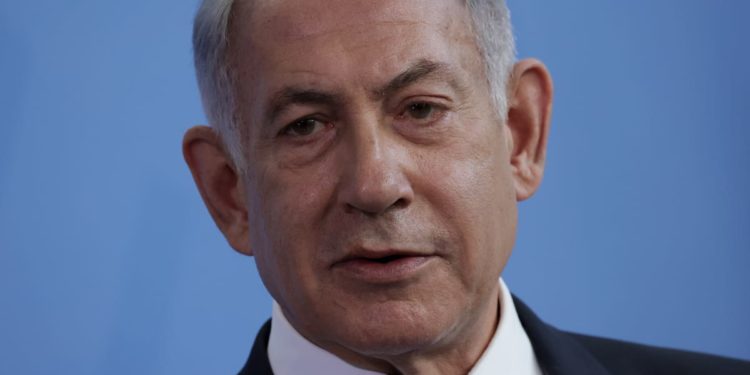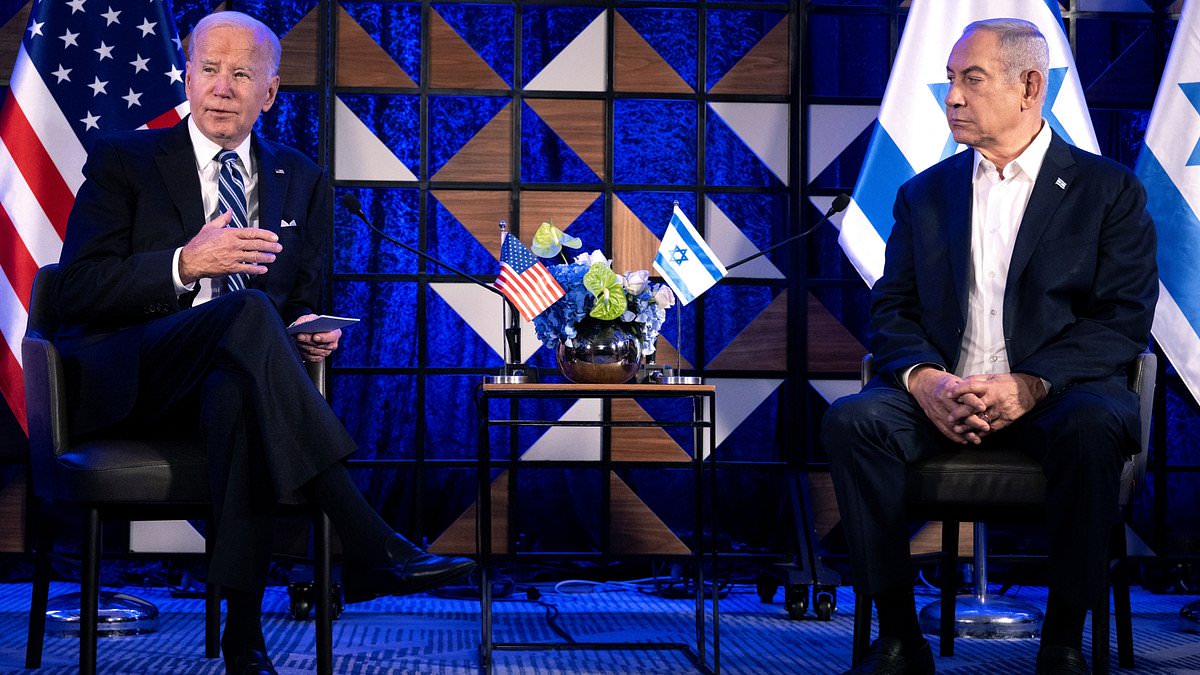POLITICO
Israeli Prime Minister Benjamin Netanyahu says he intends to press ahead with an invasion of the city of Rafah on the southern border of the Gaza Strip in defiance of U.S. President Joe Biden, who has warned such an offensive would be a “red line.”
Amid signs of increasing frustration with Netanyahu, the U.S. president told MSNBC on Saturday that he opposed an escalation of the conflict into Rafah, and that he could not accept “30,000 more Palestinians dead.”
Relief organizations have warned that an attack on Rafah on the border with Egypt — and now a refuge for about half of Gaza’s 2.3 million population — would result in widespread civilian casualties. Germany’s Foreign Minister Annalena Baerbock said it would be “a humanitarian catastrophe.”
When asked whether Israeli forces would move into Rafah in an interview on Sunday, Netanyahu replied: “We’ll go there. We’re not going to leave. You know, I have a red line. You know what the red line is, that October 7 doesn’t happen again. Never happens again.” The PM was referring to the murderous Hamas raid that killed more than 1,160 people in Israel and triggered the war.
Without naming them, Netanyahu claimed he had the tacit support of several Arab leaders for driving ahead with the onslaught against Hamas.
“They understand that, and even agree with it quietly,” he said. “They understand Hamas is part of the Iranian terror axis.”
Fighting over within ‘two months’
International pressure is mounting on Israel to agree a cease-fire.
The exact casualty figures are disputed, with the Hamas-controlled Gazan health ministry saying civilian deaths exceed 30,000. U.N. organizations have also warned of an imminent famine, with the first deaths from starvation already recorded, prompting the EU to open a sea corridor to deliver aid from Cyprus. Israeli authorities have been criticized for blocking the delivery of humanitarian assistance by land, but Netanyahu claimed the sea convoy as his idea in the interview, and denied people were starving.
He also predicted the fighting could end in as little as a month.
“We’ve destroyed three-quarters of Hamas’ fighting terrorism battalions. And we’re close to finishing the last part in warfare,” the Israeli leader said. Fighting would not “take more than two months.”
“Maybe six weeks, maybe four,” he added.
Netanyahu also gave his own death estimates. Some 13,000 Palestinian fighters had been killed, he said, while the civilian death rate was estimated at 1-1.5 for every combatant. That would put the total killed — fighters and civilians — at over 26,000.
He also dismissed the idea of a cease-fire for the Muslim holy month of Ramadan, saying while he would “like to see another hostage release,” he didn’t see any “breakthrough in the negotiations … Without a release there’s not going to be a pause in the fighting.”
No two-state solution
Israel’s prime minister also doubled down on his rejection of the possibility of a Palestinian state — a topic that pits Israel against most of the rest of the world.
“The positions that I espouse are supported by the overwhelming majority of Israelis who say to you after October 7: ‘We don’t want to see a Palestinian state,’” he said.
Netanyahu also directly addressed criticism from Biden, who has said the Israeli leader is “hurting Israel more than helping Israel.”
Netanyahu hit back, saying while he didn’t know “exactly what the president meant,” if Biden was saying he was contravening the wishes or interests of Israel, he was “wrong on both counts.”
“[The Israeli people] also support my position that says that we should resoundingly reject the attempt to ram down our throats a Palestinian state. That is something that they agree on,” Netanyahu said.
When asked about the European view that there cannot be peace without a two-state solution, Netanyahu replied: “Yeah, they would say it. But they don’t understand that the reason we don’t have peace is not because the Palestinians don’t have a state. It’s because the Jews have a state. And in fact, the Palestinians have not brought themselves to recognize and accept the Jewish state.”
Even in the case of what he described as a change of Palestinian “leadership” and “culture,” Netanyahu still insisted Israel should have full security control of all Arab territory west of the River Jordan.
Still, Israel’s leader was careful in his criticism of his American counterpart, and even more circumspect when asked whether he would prefer Republican candidate Donald Trump. “The last thing I want to do is enter the American political arena,” he said.
For Biden it’s becoming increasingly important not to alienate the left wing of the Democratic Party in the run-up to the U.S. election in November. At the same time, polling indicates Israel continues to enjoy widespread support among U.S. voters.
Netanyahu, meanwhile, has seen his domestic standing pummeled by the Oct. 7 Hamas attacks and has to placate his own electorate even as the U.S. continues to provide key military and diplomatic support to Israel.
On the vexed question of whether Israel would need to expand its campaign to combat Hezbollah in southern Lebanon, he left open the prospect of a military operation in order to facilitate the return of people who have left their homes in northern Israel through fear of cross-border attacks by the Shi’ite militia group.
“They’ve left their homes because of fear that Hezbollah would perpetrate the massacres in the northern border with Lebanon that Hamas perpetrated in the border with Gaza. So we’ll do whatever we can to restore security for them and bring them home … If we have to do it with military means, we’ll do so. If there’s a diplomatic way to achieve it, fine. But ultimately, we’ll do it.”



